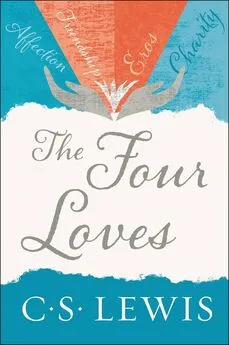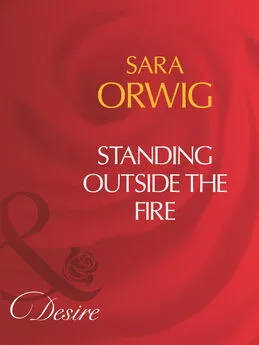Jonathan Howard - Johannes Cabal: The Fear Institute
- Название:Johannes Cabal: The Fear Institute
- Автор:
- Жанр:
- Издательство:неизвестно
- Год:неизвестен
- ISBN:нет данных
- Рейтинг:
- Избранное:Добавить в избранное
-
Отзывы:
-
Ваша оценка:
Jonathan Howard - Johannes Cabal: The Fear Institute краткое содержание
Johannes Cabal: The Fear Institute - читать онлайн бесплатно полную версию (весь текст целиком)
Интервал:
Закладка:
One of the party, a short middle-aged man with receding hair, snowy mutton chops, and the open, sanguine air of a defrocked priest spoke up: ‘We wish to make you a proposal, Herr Cabal.’
‘A proposal?’ Cabal pushed his blue-glass spectacles back up his nose and regarded the trio suspiciously. ‘What sort of proposal?’
‘That,’ interrupted the tall man in the top hat, who looked like an undertaker, ‘is better discussed in private.’ He pursed lips that looked well used to it. ‘Our immediate concern is to reach your front door.’
‘My front . . . ? Oh!’ Cabal understood and laughed. He looked down. Just over the tile-ridged edge of the garden alongside the path was a faded circular for patios and conservatory extensions. There had probably been others, but they had blown away long since, this one staying only because it was trapped beneath a discarded human femur. The surface of the bone was pocked with tiny bite marks. He looked back up at the men, a sardonic smile on his face. ‘You’re concerned about the denizens of this little plot. Gentlemen! They are only pixies and fairies! You’re not afraid of them, are you?’
‘Yeah! We’re harmless!’ piped a tiny voice from beneath a hydrangea, until it was shushed by other tiny piping voices.
For his answer the tall man stepped back and read the notice on the gate out loud: ‘ No circulars, hawkers or salesmen. Trespassers will be eaten . We are not afraid, sir. We are showing rational caution.’
‘Yes,’ conceded Cabal. ‘Put like that, I see your point. Very well.’ He spoke to the garden. ‘Let these men by.’ There was a muted chorus of dismay from the hidden watchers, but the three were allowed to walk up the path unmolested. By the time they reached the doorstep, Cabal had already gone inside.
He was waiting, seated, in his study when the three men caught up with him. They stood gravely clustered around the door, unable or unwilling to sit without their host’s invitation. Cabal was entirely unaware of a host’s duties, and contented himself by sitting with one leg crossed over the other and the pistol held idly in his lap. He looked at the men and they looked back at him for several uncomfortable moments. ‘Well?’ he said finally.
‘My card,’ said the funereal gentleman, producing one from his pocket and offering it. Cabal did not rise to take it, but suffered the man to advance, hand it over, and then withdraw in the manner of a priest delivering a votive sacrifice.
‘Mine also,’ added the third man, speaking for the first time. He had, to Cabal’s eye, the air of a recovering alcoholic who now ran a small printing company dedicated to the publication of religious tracts. 1He, too, had mutton chops, but these were black and as lustrous as a dog’s coat. His eyes were quick and dark, and he wore the disreputable shortened form of a top hat known as a ‘Müller’.
‘Mine too!’ added the one with the appearance of a disgraced priest.
Cabal studied the cards casually. ‘So, you are Messrs Shadrach,’ he thumbed the card from the top of the small pile and allowed the funeral director’s card to flutter to the floor, ‘Corde,’ he dropped the former alcoholic’s, ‘and Bose.’
‘It’s pronounced Boh-see ,’ said the unfrocked priest, although – disappointingly – it appeared from his card that he was actually a dealer in artworks.
‘You were never a priest, were you, Mr Bose?’ asked Cabal, just to be sure. Mr Bose shook his head and looked confused and that was that.
Mr Corde was – equally disappointingly – a solicitor and not a reformed alcoholic publisher of religious screeds, but Mr Shadrach really was a funeral director. This also disappointed Cabal, whose grave-robbing activities in search of research materials were often complicated by the eccentricities of those who carried out the burials. One doesn’t want to spend all night excavating down to a coffin only to discover that it is lead-lined, sealed with double-tapped screws, and proof against crowbars.
‘All very good, but none of which answers the question that I believe I implied when I said, “Well?” An art dealer, a solicitor, and a funeral director. What business have you with me, sirs? Indeed, what business have you with one another?’
‘We belong to a society, Herr Cabal. A very special society, dedicated to a noble but arcane purpose. It is this purpose that has brought us to your door.’
Cabal looked at them with a raised eyebrow. ‘ Grundgütiger ! You don’t all want to be necromancers, do you? It’s thankless work, gentlemen. I advise you strongly against it.’ Their blank expressions assured him that, no, this was not the purpose of their visit. ‘Well, what, then?’
‘Let us start from a hypothesis, Herr Cabal,’ said Mr Bose, with wheedling enthusiasm. ‘And let that hypothesis start from a question. Is the human creature as perfect in function as it might be?’
‘Meaningless,’ replied Cabal, ‘with no definition as to what that function might conceivably be. We are good communicators, passable runners, middling swimmers, and poor at flying.’
‘Just so. But even there, we are capable of communications of great subtlety over very long distances, we build locomotives that can outrun the fastest animal, steam launches that can give even dolphins a good run for their money, and aeroships that have formed our conquest of the skies. You see my point, of course. But do you take my greater meaning?’
‘ Natürlich . You are suggesting that the function of the human creature, to use your phrase, is to adapt itself to its environment or even to adapt its environment to itself by virtue of its intelligence. Then my answer is no. Humanity is nowhere near perfection even with regard only to its intellect. Have you ever looked at your fellow man? It is not edifying. I have hopes that time and evolutionary forces may improve matters or, failing that, eliminate us and give something else a chance. I think the insects deserve a turn.’
‘But in the shorter term, how may we improve ourselves?’
Cabal shrugged. ‘Eugenics. Kill the lawyers. Vitamins. There have been all manner of suggestions.’
Corde had been growing visibly exasperated with Bose and cut in: ‘Think rather in terms of what limits us, Herr Cabal. What holds us back in our everyday lives? What Mr Bose is trying to say is that our little society seeks to eliminate the most profound of all these limiting factors.’
‘Death,’ replied Cabal, without hesitation. ‘You do wish to become necromancers.’
‘No, sir!’ said Corde, a little heatedly. Gentlemen do not wish to hear themselves described as nascent necromancers, even by a necromancer. ‘I mean the little death that eats away our lives from the moment we are old enough to realise that a final death certainly awaits us.’
Cabal frowned. He was aware of the phrase ‘little death’, as used by the French, but it seemed very much out of context here, where the context consisted of Messrs Bose, Corde and Shadrach. ‘I am bemused.’
‘I mean, Herr Cabal,’ and here Mr Corde took an unconsciously dramatic step closer to Cabal, ‘ fear !’ Satisfied that he had made his point with sufficient emphasis, he stepped back again. ‘Every waking moment of our lives we spend as hostages to the terrible “perhaps”. We dread the unnameable that lurks beyond our doors. We collapse into ridiculous phobias with the most fleeting provocation. Clowns! Birds! The number thirteen! Each one a nail driven into the fabric of our lives, limiting our movement, hemming us in, draining our futures of possibilities. How many better tomorrows have been lost because of natural human timidity? How many wonders have never seen the light because those who dared dream them could never dare build them?’
Cabal laughed: a humourless sound. ‘You wish courage, gentlemen? I believe it may be found in any public house, by the pint. Good day.’ He rose to escort the men out, but then Mr Shadrach spoke, and Cabal listened.
‘We have considered long and carefully before coming to you, Herr Cabal. You are quite right. A sufficient measure of liquor will drive out fear from any man, but it will take all rationality with it too. My companions have not perhaps made our aim quite as clear as they might. We understand the role of fear as a safeguard, but we dispute its effect on a higher creature such as the human being. A rational man should be able to look upon a situation and weigh its dangers – physical, moral or financial – as coldly as if weighing tea on a scale. That is denied us because fear is essentially irrational. We seek nothing more or less than to remove it. Our dream is that one day the human race will walk this good Earth, free from the invisible tethers of fear, subject only to the kindly effects of rational caution.’
Cabal sighed and sat down again. ‘You mentioned a society. What sort of society? Do you hold annual general meetings, raise funds by selling cakes, and all go on a charabanc holiday together with funds raised by subscription?’
‘We do not,’ replied Shadrach, a little icily.
‘Ah,’ said Cabal. ‘Yours is the other sort of society, then. The type with impractical handshakes.’
Shadrach also regarded their society’s secret handshake as unnecessary, infantile and not even very secret, as it looked like the first shakee was attempting to put the second into a half-nelson. Thus, he did not dispute Cabal’s description, but said, ‘Our numbers are relatively few, but contain men and a few women of influence and insight. Scientists, logicians, entrepreneurs. Our resources, both intellectual and monetary, run as deep as our ambitions.’
‘No churchmen, I notice. Of course not. What use have they for a world without irrational fear? And how did an undertaker, an art dealer and a solicitor happen to join such a society?’
‘Irrelevant,’ said Corde, a little snappily.
Shadrach, however, was happy to elucidate. ‘My own interest was founded in the lack of fear of the dead that I feel, a lack created by my long familiarity with the practicalities of dealing with the recently departed. One cannot do such business without wondering at the fear the public hold for a population that can offer them no harm.’
Cabal, whose experience with that population indicated that they were perfectly capable of offering harm in the right circumstances, held his silence.
‘Mr Corde, if I may speak on your behalf?’ Corde jerked his head in an impatient affirmation, so Shadrach continued: ‘Mr Corde deals with people every day who make bad decisions based upon fear and not logic, whether to create a fund here, or a trust there, even fear of writing a will in case it should tempt Fate in some ill-imagined way. In both our cases, you see, we watch people blunt their lives with silly fears, fears that offer them nothing, not even safety. And Mr Bose . . .’ here, Shadrach did not ask permission ‘. . . is fascinated by the deeper mysteries, of life, of death.’
‘I meet all sorts in my job,’ smiled Bose, as if discussing the vagaries of collecting matchbox labels. ‘One of my clients told me about the society, and I said, “Oh, that sounds like fun!” So here I am.’
Shadrach looked at Bose for a long moment, unsure how to proceed. Cabal filled the silence a little impatiently by saying, ‘Yes, it’s all very laudable I’m sure, but I am still at a loss to understand my part in all this. How do you intend to achieve your goal? Brain surgery?’
Bose grimaced. ‘Tried that. It didn’t work,’ he said, before being shushed by Corde.
Читать дальшеИнтервал:
Закладка:





